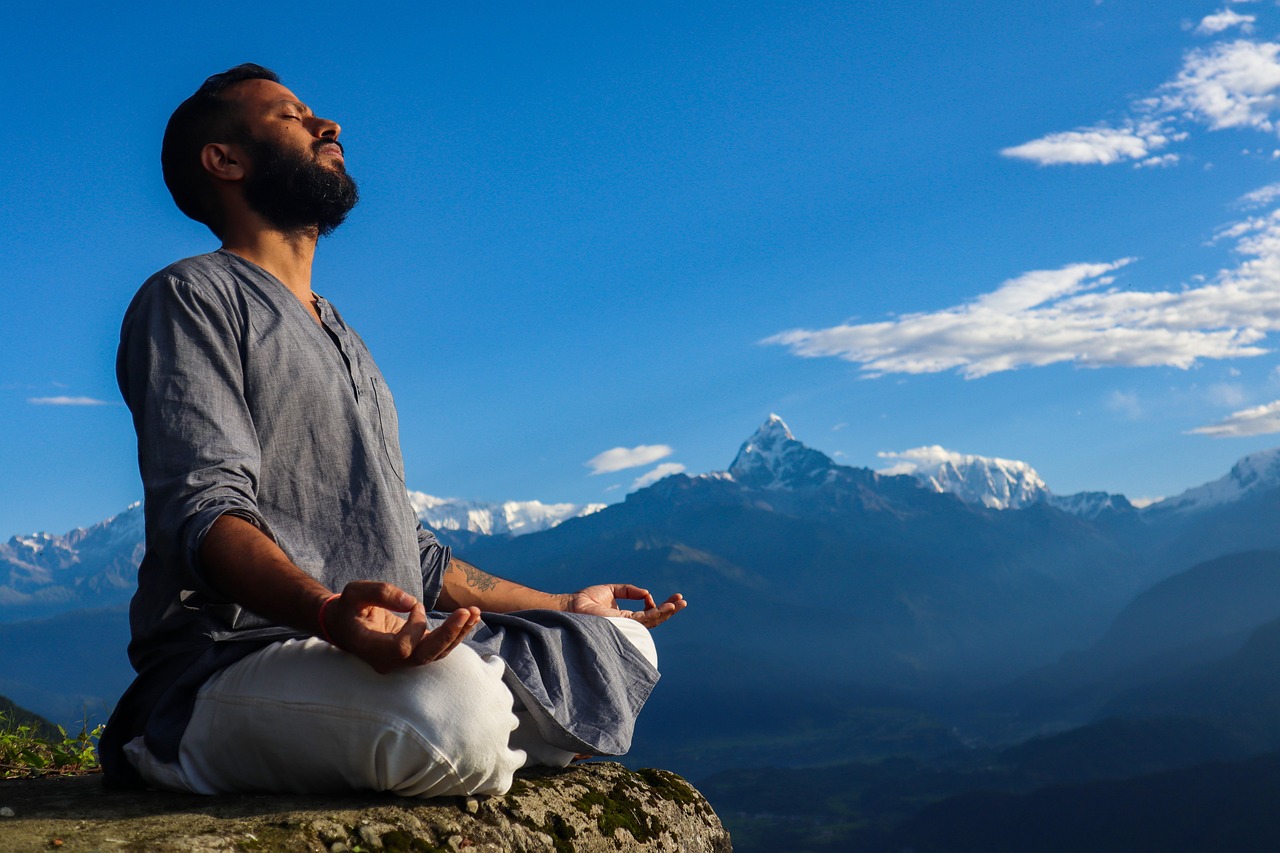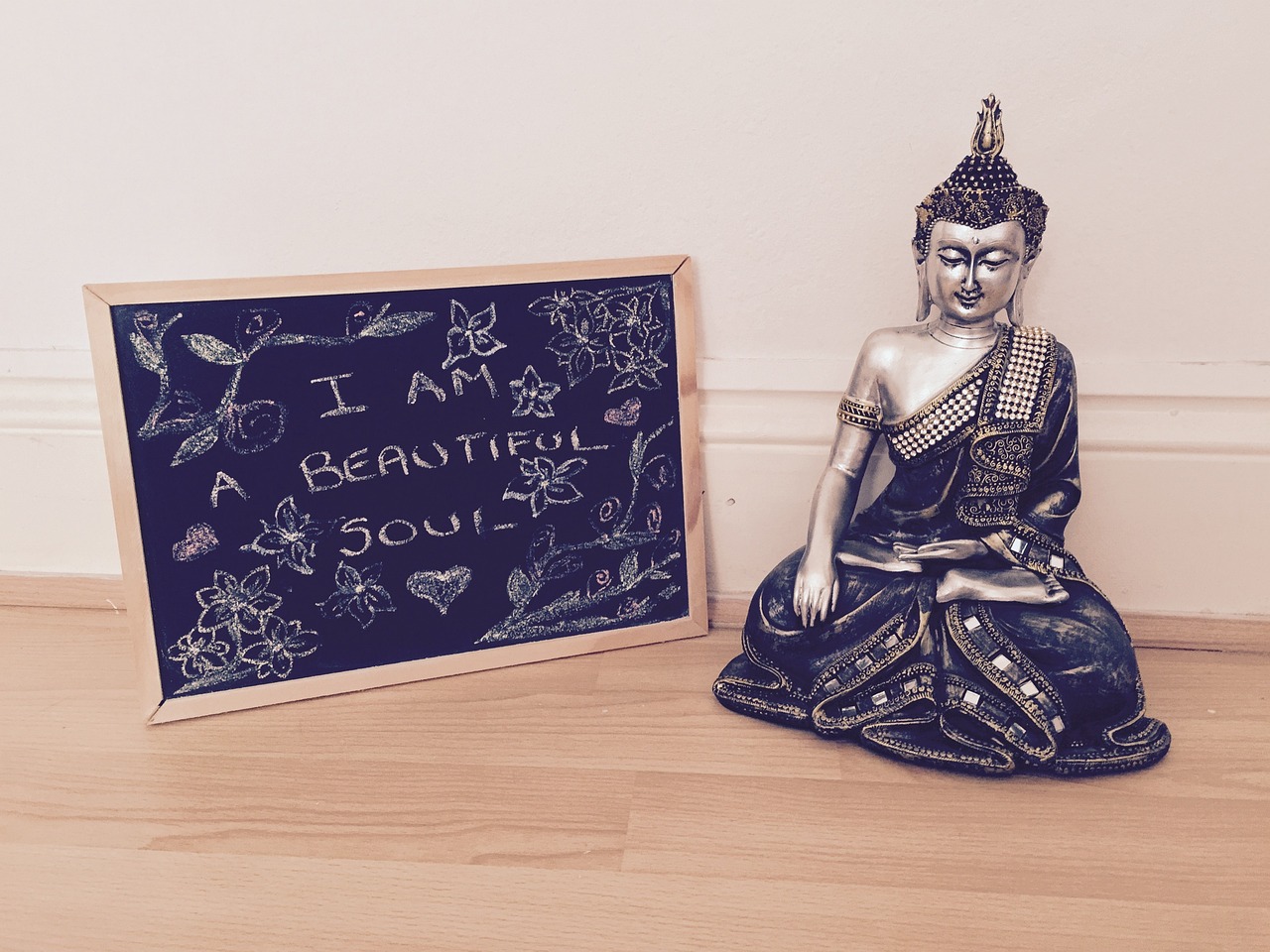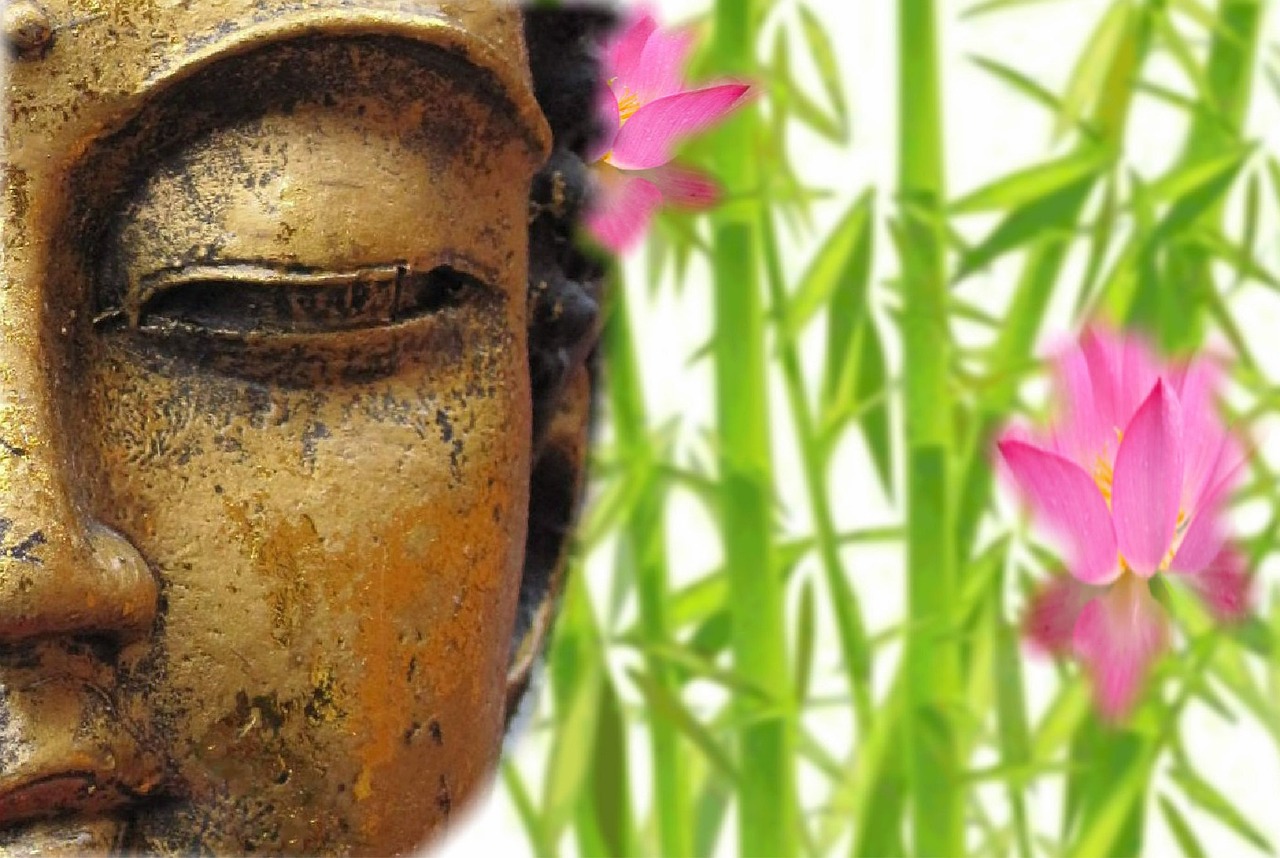Striving for Spiritual Consciousness - A Philosophical Take
In a world bustling with distractions and relentless pursuits, the quest for spiritual consciousness stands out as a beacon of hope and enlightenment. But what does it mean to strive for such a state? It’s not merely about achieving a heightened sense of awareness; it’s about diving deep into the essence of our being, exploring the intricate layers of existence, and connecting with something greater than ourselves. This journey is multifaceted, involving philosophical insights, practical applications, and profound implications for both personal and societal transformation.
When we talk about spiritual consciousness, we often encounter a myriad of definitions and interpretations. At its core, it encompasses an elevated state of awareness that transcends the mundane aspects of life. It’s about recognizing the interconnectedness of all beings and the universe, a realization that can lead to a more compassionate and fulfilling existence. Unlike mere awareness, which can be fleeting and superficial, spiritual consciousness invites us to engage in a deeper dialogue with ourselves and the world around us.
Exploring this concept requires us to delve into various philosophical perspectives that have shaped our understanding of spirituality over centuries. From the profound teachings of Eastern philosophies like Buddhism and Hinduism to the reflective inquiries of Western thought, we find a rich tapestry of ideas that can guide our journey. Each tradition offers unique insights, encouraging us to look beyond the surface and engage with the deeper questions of existence.
As we embark on this exploration, it’s essential to recognize that striving for spiritual consciousness is not a destination but a continuous journey. It’s akin to climbing a mountain; the higher you ascend, the more breathtaking the views become. Along the way, we encounter challenges and moments of clarity that shape our understanding and experience. This journey is deeply personal yet universally shared, reminding us that while our paths may differ, the essence of our quest remains the same.
In the following sections, we will examine various philosophical perspectives on spirituality, explore practical practices that enhance spiritual consciousness, and consider the profound impact this journey can have on society as a whole. So, are you ready to embark on this transformative adventure? Let’s dive deeper into the nature of spiritual consciousness and uncover the wisdom that lies within.
Understanding what spiritual consciousness entails is crucial. This section delves into its definitions, characteristics, and how it differs from mere awareness, setting the stage for deeper exploration.
Various philosophical traditions offer unique insights into spirituality. Here, we discuss key thinkers and their contributions to our understanding of spiritual consciousness, enriching our perspective on this profound topic.
Eastern philosophies, such as Buddhism and Hinduism, provide rich frameworks for understanding spiritual consciousness. This section highlights their core teachings and practices that promote spiritual awakening and enlightenment.
Meditation and mindfulness are essential practices in Eastern traditions. This subsection explores how these techniques foster a deeper connection to spiritual consciousness and enhance overall well-being.
The idea of oneness is central to many Eastern philosophies. Here, we examine how this concept influences our understanding of self and the universe, leading to spiritual growth.
Western thought also contributes to the discourse on spiritual consciousness. This section investigates the perspectives of influential philosophers and their relevance to contemporary spiritual practices.
Engaging in specific practices can facilitate the journey toward spiritual consciousness. This section outlines various methods, including meditation, journaling, and community involvement, that support this goal.
Incorporating daily rituals can significantly impact spiritual awareness. This subsection discusses practical habits that individuals can adopt to nurture their spiritual growth and mindfulness.
Building connections with others is vital for spiritual development. Here, we explore how community involvement and shared experiences can enhance one’s journey toward spiritual consciousness.
Spiritual consciousness not only transforms individuals but also has profound societal implications. This section examines how heightened awareness can lead to positive social change and collective well-being.
- What is spiritual consciousness? Spiritual consciousness refers to an elevated state of awareness that encompasses a deep understanding of the interconnectedness of all beings and the universe.
- How can I enhance my spiritual consciousness? Practices like meditation, mindfulness, journaling, and engaging with community can significantly enhance your spiritual journey.
- What are the benefits of striving for spiritual consciousness? Striving for spiritual consciousness can lead to personal fulfillment, enhanced empathy, and a positive impact on society.

The Nature of Spiritual Consciousness
Understanding what spiritual consciousness entails is crucial for anyone embarking on a journey of self-discovery and enlightenment. At its core, spiritual consciousness represents a heightened state of awareness that transcends the ordinary experiences of daily life. It's not merely about being aware of your surroundings or your thoughts; it’s about connecting with a deeper essence of existence. Think of it as tuning into a radio frequency that allows you to hear not just the noise of life, but the symphony of the universe.
One might wonder, how does this differ from mere awareness? While awareness often pertains to the here and now, spiritual consciousness invites us to explore the interconnectedness of all things. It encourages us to look beyond the surface and recognize the profound unity that binds us to one another, to nature, and to the cosmos. This level of consciousness can be likened to stepping back from a painting to see the entire canvas rather than just the brush strokes. When you zoom out, the picture becomes clearer, revealing the intricate patterns and relationships that define our existence.
Moreover, spiritual consciousness is characterized by several key features:
- Introspection: A deep, reflective practice that encourages individuals to examine their beliefs, thoughts, and emotions.
- Empathy: An enhanced ability to understand and share the feelings of others, fostering a sense of connection and compassion.
- Presence: A state of being fully engaged in the moment, free from distractions and the burdens of the past or future.
- Transcendence: The experience of going beyond the ordinary limits of the self, often leading to feelings of bliss and interconnectedness.
As we dive deeper into the nature of spiritual consciousness, it’s essential to recognize that this journey is not linear. It often involves ebbs and flows, moments of clarity followed by confusion. Just like a river that carves its path through a landscape, spiritual consciousness shapes our understanding of life through experiences, insights, and sometimes, challenges. Each twist and turn in the river represents a lesson learned, a moment of growth that contributes to our overall spiritual evolution.
In essence, the journey toward spiritual consciousness is about expanding our horizons and embracing the mystery of life. It’s about asking the big questions—Who am I? Why am I here? What is my purpose?—and being open to the answers that may come from unexpected places. This exploration can lead to profound personal transformations, as we begin to align our lives with our true values and beliefs.
As we continue to explore the multifaceted dimensions of spiritual consciousness, it’s important to remember that this journey is deeply personal. Each individual's path may look different, shaped by unique experiences, cultural backgrounds, and philosophical beliefs. However, the common thread remains: a quest for understanding, connection, and ultimately, a sense of peace within ourselves and the world around us.

Philosophical Perspectives on Spirituality
When it comes to spirituality, the philosophical perspectives we encounter are as diverse as the people who explore them. Different cultures and eras have shaped unique interpretations of spiritual consciousness, each offering insights that can deepen our understanding of ourselves and the universe. From the introspective teachings of Eastern philosophies to the rational inquiries of Western thought, the tapestry of spiritual philosophy is rich and complex.
One of the most fascinating aspects of this exploration is how various philosophical traditions tackle the concept of the self. For instance, in Eastern philosophies such as Buddhism and Hinduism, the self is often viewed as an illusion, a transient construct that must be transcended to attain spiritual awakening. This perspective invites individuals to look beyond their ego and recognize their interconnectedness with all beings. Conversely, many Western philosophers, like Descartes and Kant, emphasize the importance of the self as a distinct entity capable of rational thought and moral judgment. This dichotomy raises essential questions: Is the self an illusion, or is it a vital part of our spiritual journey?
To appreciate these philosophical perspectives, let’s delve into some key thinkers and their contributions:
- Siddhartha Gautama (Buddha): His teachings on suffering and the path to enlightenment emphasize the importance of mindfulness and meditation.
- Rumi: This Persian poet and Sufi mystic spoke of love and the divine connection between all beings, highlighting the spiritual journey as one of unity.
- Friedrich Nietzsche: Although often seen as a critic of traditional spirituality, Nietzsche's ideas about the "Übermensch" challenge us to create our own values and meanings in life.
- Martin Heidegger: His exploration of "being" encourages a deeper inquiry into existence and our place in the world, urging us to embrace our spiritual essence.
These thinkers, among many others, provide a foundation for understanding spiritual consciousness from various angles. Eastern philosophies often emphasize practices like meditation, which serve as gateways to deeper awareness. In contrast, Western philosophies frequently engage in critical thinking, challenging us to question the nature of reality and our beliefs. This interplay between practice and theory enriches our spiritual journey, offering multiple pathways to explore.
Moreover, the implications of these philosophical perspectives extend beyond individual growth. They urge us to consider how our understanding of spirituality shapes societal norms and collective consciousness. For example, when we adopt a holistic view of spirituality, recognizing our interconnectedness, we may be more inclined to advocate for social justice and environmental sustainability. This shift in perspective can lead to transformative societal changes, as individuals who are spiritually aware often seek to create a more compassionate and equitable world.
In summary, the philosophical perspectives on spirituality provide a rich framework for understanding our place in the universe. By engaging with these diverse viewpoints, we not only enhance our personal spiritual journeys but also contribute to a broader dialogue about the nature of existence and the potential for collective transformation.

Eastern Philosophical Views
When we delve into the realm of Eastern philosophies, we uncover a treasure trove of wisdom that profoundly shapes our understanding of spiritual consciousness. Traditions such as Buddhism and Hinduism offer rich frameworks that not only define spiritual awareness but also provide practical paths toward achieving it. These philosophies emphasize the interconnectedness of all beings and the importance of inner peace, inviting individuals to embark on a transformative journey of self-discovery.
At the heart of these teachings lies the concept of spiritual awakening. In Buddhism, for instance, the journey towards enlightenment is marked by the realization of the Four Noble Truths, which guide practitioners to understand the nature of suffering and the path to liberation. Similarly, Hinduism speaks of Moksha, the liberation from the cycle of birth and rebirth, as a state of ultimate spiritual consciousness. Both philosophies encourage individuals to look beyond the material world and connect with the deeper essence of existence.
One of the most significant practices in these traditions is meditation. This technique serves as a bridge to spiritual consciousness, allowing individuals to quiet their minds and tune into their inner selves. Through meditation, practitioners can cultivate mindfulness, leading to a heightened awareness of their thoughts, emotions, and the world around them. This practice not only promotes personal growth but also fosters a sense of compassion and understanding towards others, aligning with the core teachings of Eastern philosophies.
Meditation is more than just a practice; it's a way of life in Eastern traditions. By engaging in daily meditation, individuals can experience profound shifts in their consciousness. This practice can take various forms, including Zen meditation, which emphasizes stillness and presence, or Transcendental Meditation, which focuses on mantra repetition. Regardless of the method, the goal remains the same: to achieve a state of deep awareness and connection to the universe.
Mindfulness, often intertwined with meditation, encourages individuals to remain present in each moment. This practice cultivates a sense of gratitude and appreciation for life, transforming mundane experiences into opportunities for spiritual growth. By being fully engaged in the present, we can break free from the shackles of past regrets and future anxieties, allowing us to experience life in its fullest form.
Another cornerstone of Eastern philosophies is the concept of oneness. This idea posits that all beings are interconnected, forming a vast web of existence. In many Eastern traditions, the self is seen as an illusion, and the realization of this oneness is pivotal for spiritual growth. When individuals recognize their intrinsic connection to all life, they often experience a profound sense of peace and belonging.
For instance, in Hinduism, the notion of Brahman—the ultimate reality—suggests that every individual soul (or Atman) is a manifestation of this universal consciousness. This understanding encourages compassion and empathy, as one begins to see others not as separate entities but as extensions of themselves. Similarly, in Buddhism, the idea of interbeing emphasizes that our actions impact the whole, reinforcing the importance of living mindfully and ethically.
In conclusion, Eastern philosophical views on spiritual consciousness offer profound insights and practices that can guide individuals on their spiritual journeys. By embracing meditation, mindfulness, and the concept of oneness, we can cultivate a deeper connection to ourselves and the universe, ultimately leading to a richer and more fulfilling life.

Meditation and Mindfulness
Meditation and mindfulness are not just trendy buzzwords; they are profound practices that have been integral to spiritual traditions for centuries. Imagine your mind as a bustling city, filled with noise, distractions, and chaos. Now, picture meditation as a serene park in the heart of that city—a place where you can escape, reflect, and reconnect with your inner self. This is the essence of meditation: a method to quiet the mind and cultivate a deeper awareness of the present moment.
Mindfulness, on the other hand, is the practice of being fully present and engaged in the here and now. It’s about noticing the little things—like the gentle rustle of leaves, the warmth of the sun on your skin, or the taste of your morning coffee. When you practice mindfulness, you are not just going through the motions of life; you are experiencing it with all your senses. Together, meditation and mindfulness create a powerful synergy, enabling individuals to tap into their spiritual consciousness.
One of the most beautiful aspects of these practices is their accessibility. You don’t need to sit cross-legged on a mountaintop or have a special guru. Instead, you can start right where you are, whether it’s in your living room, during your lunch break, or even while waiting in line at the grocery store. Here are a few simple techniques to incorporate meditation and mindfulness into your daily routine:
- Breath Awareness: Take a few moments to focus solely on your breath. Inhale deeply through your nose, filling your lungs, and exhale slowly through your mouth. This practice grounds you and brings your attention back to the present.
- Body Scan: Lie down comfortably and mentally scan your body from head to toe. Notice any areas of tension or discomfort, and consciously relax those muscles.
- Mindful Walking: Go for a walk and focus on the sensation of your feet touching the ground, the rhythm of your breath, and the sights and sounds around you.
These techniques are just the tip of the iceberg. The journey into meditation and mindfulness can lead to incredible transformations. As you become more attuned to your inner self, you may find that your emotional responses become more balanced, your stress levels decrease, and your overall sense of well-being improves. It’s like turning down the volume on the chaos of life, allowing you to hear the whispers of your soul.
Moreover, scientific research supports the benefits of these practices. Studies have shown that regular meditation can lead to structural changes in the brain, enhancing areas associated with emotional regulation and self-awareness. It’s fascinating to think that something as simple as sitting quietly and focusing on your breath can have such profound effects on your brain and overall health!
As you deepen your practice, you may also notice an increased sense of compassion and empathy towards others. Meditation and mindfulness help dissolve the barriers that separate us, fostering a sense of connection with the world around us. In a society that often feels fragmented, these practices serve as a bridge, reminding us of our shared humanity and the importance of compassion.
In conclusion, meditation and mindfulness are essential tools on the journey toward spiritual consciousness. They invite us to slow down, listen, and connect with our true selves. So why not take a moment today to pause, breathe, and simply be? Your spiritual journey awaits, and it starts with a single breath.
Q: How long should I meditate each day?
A: Even a few minutes can be beneficial! Start with 5-10 minutes daily and gradually increase as you feel comfortable.
Q: Do I need to sit in a specific position to meditate?
A: Not at all! You can meditate sitting on a chair, lying down, or even walking. The key is to find a position that feels comfortable for you.
Q: What if my mind keeps wandering during meditation?
A: It's completely normal! When you notice your mind wandering, gently bring your focus back to your breath or the present moment without judgment.

The Concept of Oneness
The concept of oneness is a profound and transformative idea that resonates deeply within many Eastern philosophies, particularly in traditions like Buddhism and Hinduism. At its core, oneness suggests that everything in the universe is interconnected, forming a single, unified whole. This perspective encourages individuals to transcend the illusion of separation and recognize that their essence is intertwined with the fabric of existence itself. Imagine a vast ocean where every drop of water, while appearing distinct, is fundamentally part of the same body of water. In this analogy, each individual is like a drop, unique yet inseparable from the greater ocean of life.
Understanding oneness can lead to a significant shift in consciousness. When we embrace this idea, we begin to see ourselves not as isolated beings but as integral parts of a larger community and universe. This realization fosters empathy, compassion, and a sense of responsibility towards others and the environment. It invites us to ask ourselves, "How do my actions impact not just me, but everyone around me?" This question can be a powerful catalyst for personal and societal change.
Moreover, the practice of meditation and mindfulness plays a crucial role in cultivating a sense of oneness. Through these practices, individuals can quiet their minds and tune into the deeper rhythms of life. As they do so, they often report feelings of unity with nature, other people, and even the cosmos. This experience can be both humbling and enlightening, as it reveals the interconnectedness of all beings and the shared journey of existence.
In addition, the concept of oneness encourages us to dismantle the barriers that often divide us—be they cultural, social, or ideological. By recognizing our shared humanity, we can work towards a more harmonious society. Consider the following implications of embracing oneness:
- Increased Compassion: Acknowledging our interconnectedness can lead to greater empathy for others.
- Holistic Perspective: It encourages a broader view of life's challenges, promoting collaborative solutions.
- Environmental Responsibility: Understanding that we are part of the Earth can inspire sustainable living practices.
Ultimately, the concept of oneness is not just a philosophical idea; it's a call to action. It invites us to engage with the world more consciously and compassionately, fostering a sense of unity that can lead to profound personal growth and societal transformation. By embracing this principle, we can begin to heal the divisions that plague our world and move towards a more inclusive and loving future.
- What is the concept of oneness?
Oneness refers to the idea that everything in the universe is interconnected and part of a single, unified whole. - How can I experience oneness in my life?
Practices such as meditation, mindfulness, and engaging in community activities can help cultivate a sense of oneness. - Why is oneness important for personal growth?
Embracing oneness can lead to greater empathy, understanding, and a sense of responsibility towards others and the environment.

Western Philosophical Approaches
When we think about spirituality in the Western context, it's like opening a treasure chest filled with diverse ideas and rich traditions. Western philosophy has long grappled with the concept of spiritual consciousness, offering various perspectives that help us understand our place in the universe and our connection to something greater than ourselves. Thinkers like Plato, Descartes, and more recently, existentialists like Kierkegaard and Nietzsche, have all contributed to this discourse, each adding their unique flavor to the discussion.
At its core, Western philosophy often emphasizes the role of reason and individualism. For instance, Plato's idea of the *Forms* suggests that there exists a higher reality beyond our physical world, a realm of perfect ideas that our souls long to return to. This notion can be seen as an early exploration of spiritual consciousness, where the quest for truth and understanding transcends mere material existence. Plato's allegory of the cave is particularly poignant here; it illustrates how many of us live in shadows, unaware of the true light of knowledge and spiritual awakening that lies just beyond our perception.
Moving forward in time, we encounter Descartes, who famously declared, *"I think, therefore I am."* His philosophical inquiries into the nature of existence and consciousness paved the way for modern discussions on the self. Descartes' dualism, which separates the mind and body, raises fascinating questions about the nature of spiritual consciousness. If the mind can exist independently of the body, what does that imply about our spiritual essence? This perspective encourages us to delve deeper into our thoughts and beliefs, prompting a reflection on the spiritual dimensions of our lives.
Existentialists like Kierkegaard and Nietzsche took a different approach, focusing on individual experience and the search for meaning in an often chaotic world. Kierkegaard emphasized the importance of personal choice and commitment, suggesting that true spiritual consciousness arises from embracing our unique paths and responsibilities. Nietzsche, on the other hand, challenged traditional notions of morality and spirituality, advocating for the idea of the *Übermensch* or *Overman*, who creates their values and meaning in life. This radical approach invites us to question societal norms and encourages a personal journey toward spiritual awareness.
In contemporary discussions, philosophers like Martin Heidegger have also made significant contributions. Heidegger's concept of *Being* emphasizes the importance of authenticity and our relationship with existence. He argues that to achieve spiritual consciousness, we must confront our own mortality and the transient nature of life. This awareness can lead to a deeper appreciation of our experiences and relationships, fostering a sense of interconnectedness with others and the world around us.
It’s interesting to note how these Western philosophical approaches intersect with spiritual practices today. Many modern spiritual movements draw from these philosophical roots, blending reason with experiential practices. For instance, the integration of mindfulness and meditation, often associated with Eastern traditions, is gaining traction in Western societies, bridging the gap between philosophy and practice. This fusion encourages a holistic understanding of spiritual consciousness, where intellectual inquiry complements personal experience.
In conclusion, the Western philosophical landscape offers a rich tapestry of ideas that enhance our understanding of spiritual consciousness. By engaging with these diverse perspectives, we can cultivate a deeper awareness of ourselves and our place in the universe. As we navigate this journey, we might find that the quest for spiritual consciousness is not just an individual endeavor but a collective one, inviting us to explore the profound connections that bind us all.
- What is spiritual consciousness? Spiritual consciousness refers to a heightened awareness of the self and the universe, often characterized by feelings of interconnectedness and a search for meaning beyond material existence.
- How does Western philosophy contribute to our understanding of spirituality? Western philosophy offers various perspectives that emphasize reason, individualism, and existential inquiry, enriching our understanding of spiritual consciousness.
- Can Eastern and Western philosophies be integrated? Yes! Many contemporary spiritual practices blend insights from both Eastern and Western philosophies, creating a more holistic approach to spiritual consciousness.

Practices to Enhance Spiritual Consciousness
Enhancing spiritual consciousness is not just a lofty goal; it’s a journey that invites us to explore the depths of our being and connect with the world around us. Just like watering a plant helps it flourish, engaging in specific practices nurtures our spiritual growth. So, what are these practices, and how can they transform our lives? Let's dive into some enriching methods that can elevate our spiritual awareness.
One of the most profound practices is meditation. Imagine sitting in a serene space, closing your eyes, and focusing on your breath. It’s like hitting the pause button on life’s chaos, allowing you to tune into your inner self. Regular meditation can help quiet the mind, reduce stress, and foster a deeper connection to your spiritual essence. In fact, studies have shown that just a few minutes of meditation each day can lead to significant improvements in mental clarity and emotional well-being.
Another valuable practice is journaling. Think of it as a conversation with yourself—a safe space where you can pour out your thoughts, feelings, and reflections. Journaling can help clarify your intentions and aspirations, making it easier to align your actions with your spiritual goals. By documenting your journey, you can track your progress and recognize patterns that may be hindering your growth. It’s like shining a light on the shadows, allowing you to confront and embrace every aspect of your being.
Moreover, community involvement plays a crucial role in enhancing spiritual consciousness. Engaging with others who share similar values and beliefs can create a sense of belonging and support. Whether it’s joining a meditation group, participating in volunteer work, or simply sharing experiences with friends, these connections can deepen your understanding of spirituality. As we interact with others, we often discover new perspectives that challenge our views and encourage growth. It’s like a tapestry, where each thread contributes to a beautiful, interconnected whole.
Incorporating daily rituals can also significantly impact your spiritual journey. These rituals can be as simple as lighting a candle each morning, expressing gratitude, or taking a mindful walk in nature. By dedicating time to these practices, you create a sacred space in your daily routine that fosters awareness and reflection. Think of it as setting the stage for a play—when you create the right environment, the performance of your life becomes more vibrant and meaningful.
Finally, let’s not forget the power of mindfulness. This practice encourages us to be present in each moment, fully experiencing life as it unfolds. It’s about savoring the taste of your food, feeling the warmth of the sun on your skin, and appreciating the laughter of a friend. By cultivating mindfulness, we learn to observe our thoughts and feelings without judgment, leading to greater self-awareness and spiritual growth. It’s akin to being an artist, where every moment is a brushstroke on the canvas of your life.
In conclusion, the journey toward spiritual consciousness is a deeply personal and transformative experience. By engaging in practices such as meditation, journaling, community involvement, daily rituals, and mindfulness, we can open ourselves to profound insights and connections. Remember, it’s not about perfection; it’s about progress. Each small step you take can lead to significant changes in your spiritual landscape, illuminating your path toward a more conscious and fulfilling life.
- What is spiritual consciousness? Spiritual consciousness refers to a heightened awareness of oneself and a deeper connection to the universe, often leading to personal growth and transformation.
- How can meditation help enhance spiritual consciousness? Meditation helps quiet the mind, allowing individuals to connect with their inner selves and cultivate a sense of peace and clarity.
- Why is community involvement important for spiritual growth? Engaging with others fosters connections and shared experiences, which can enhance understanding and support on the spiritual journey.
- What are some daily rituals I can incorporate into my life? Simple rituals like gratitude journaling, mindful breathing, or nature walks can significantly enhance your spiritual awareness.

Daily Rituals and Habits
In our fast-paced world, where distractions lurk around every corner, establishing daily rituals and habits can serve as an anchor, helping us to cultivate a deeper sense of spiritual consciousness. Think of these rituals as your personal toolkit, each item designed to foster a connection with your inner self and the universe around you. Just as a gardener tends to their plants daily, nurturing them with water and sunlight, we too must nurture our spiritual growth through consistent practices.
So, what does a daily ritual look like? It can be as simple as starting your day with a few moments of gratitude. When you wake up, take a moment to reflect on three things you are thankful for. This practice not only sets a positive tone for the day but also shifts your focus toward abundance rather than lack. You might even consider jotting these thoughts down in a journal, creating a tangible record of your journey.
Another powerful daily habit is mindful breathing. This can be done anywhere—whether you’re commuting to work or waiting in line at the grocery store. Just pause for a moment, close your eyes if you feel comfortable, and take a deep breath in through your nose, holding it for a few seconds before exhaling slowly through your mouth. This simple act can ground you, bringing your awareness back to the present moment and connecting you with your spiritual essence.
Incorporating meditation into your daily routine can also be transformative. You don’t need to sit cross-legged on a mountaintop for hours; even five to ten minutes of focused meditation can enhance your spiritual awareness. Find a quiet space, sit comfortably, and allow your thoughts to flow without judgment. Over time, you may notice a profound shift in your ability to remain centered and calm, even amidst chaos.
Additionally, consider creating a nightly ritual to reflect on your day. Before you go to bed, take a few minutes to unwind. This could involve reading a spiritually uplifting book, practicing gentle yoga, or simply sitting in silence, contemplating your day’s experiences. Such rituals can help you process your thoughts and emotions, allowing for a peaceful transition into sleep.
To further illustrate the impact of daily rituals, here’s a simple table summarizing effective practices:
| Ritual | Description | Benefits |
|---|---|---|
| Gratitude Journaling | Writing down things you are thankful for each morning. | Shifts focus to positivity, enhances emotional well-being. |
| Mindful Breathing | Taking deep breaths to center yourself throughout the day. | Reduces stress, increases present-moment awareness. |
| Meditation | Spending time in quiet reflection or guided meditation. | Improves focus, promotes inner peace. |
| Nightly Reflection | Reviewing your day and processing thoughts before bed. | Enhances self-awareness, promotes restful sleep. |
Lastly, remember that the key to these rituals is consistency. Just like building a muscle, spiritual consciousness requires regular practice. By integrating these habits into your daily life, you not only enhance your own spiritual journey but also create a ripple effect that can positively influence those around you. Who knows? Your commitment to personal growth might just inspire someone else to embark on their own path toward spiritual awakening.
- What are daily rituals? Daily rituals are consistent practices that help individuals connect with their spiritual selves and promote mindfulness.
- How long should I meditate each day? Even a few minutes can be beneficial, but aiming for 5-10 minutes daily can lead to significant improvements in spiritual awareness.
- Can I create my own rituals? Absolutely! Personalizing your rituals to fit your lifestyle and beliefs can make them more effective and meaningful.

Community and Connection
When we think about our spiritual journey, we often envision solitary moments of reflection or deep meditation. However, the truth is that play a pivotal role in enhancing our spiritual consciousness. Imagine trying to climb a mountain alone; it can be daunting and exhausting. Now, picture a group of fellow climbers by your side, sharing the load and encouraging one another. This analogy beautifully illustrates how community can uplift and inspire us on our spiritual paths.
Being part of a spiritual community allows us to share our experiences, challenges, and insights with others who are on similar journeys. It's like having a support system that not only understands our struggles but also celebrates our victories. In these communal settings, we learn from one another, gaining diverse perspectives that can deepen our understanding of spiritual consciousness.
Moreover, engaging with others fosters a sense of belonging. In our fast-paced, often isolating modern world, finding a community can be incredibly grounding. When we gather with like-minded individuals, we create a space where we can express our thoughts and feelings freely, without judgment. This environment encourages vulnerability, which is essential for spiritual growth. After all, how can we truly connect with our inner selves if we are afraid to share our authentic selves with others?
Participating in group activities, whether they are meditation sessions, discussion circles, or volunteer opportunities, can significantly enhance our spiritual awareness. For instance, consider the following ways community involvement can impact our spiritual journey:
- Shared Learning: Engaging with others allows us to learn new practices and philosophies that we might not encounter on our own.
- Accountability: When we share our spiritual goals with others, we create a sense of accountability that can motivate us to stay committed.
- Collective Energy: The energy generated in a group setting can amplify our individual experiences, making meditation or prayer more profound.
- Support During Challenges: In times of struggle, having a community to lean on can provide comfort and guidance.
Additionally, community connection can lead to a greater sense of purpose. When we engage in activities that benefit others, we often find that our own spiritual consciousness expands. Volunteering, for instance, not only helps those in need but also allows us to connect with our shared humanity. It reminds us that we are all part of something bigger, fostering a sense of oneness that is central to many spiritual teachings.
In conclusion, the journey toward spiritual consciousness is not meant to be traveled alone. By seeking out and nurturing community connections, we enrich our experiences and foster a deeper understanding of ourselves and the world around us. So, whether it's joining a local meditation group, participating in community service, or simply sharing a meal with friends, remember that these connections are vital to your spiritual growth.
- Why is community important for spiritual growth? Community provides support, shared learning, and a sense of belonging that enhances individual spiritual journeys.
- How can I find a spiritual community? Look for local meditation centers, spiritual groups on social media, or community events that align with your interests.
- What activities can strengthen community connections? Participating in group meditations, discussion circles, and volunteering can help build strong spiritual connections.
- Can I develop spiritual consciousness without a community? While personal practices are valuable, engaging with a community can significantly enrich and support your journey.

The Impact of Spiritual Consciousness on Society
The ripple effects of spiritual consciousness extend far beyond the individual, weaving through the very fabric of society. When people embark on their personal journeys toward spiritual awakening, they often experience profound transformations that influence their relationships, communities, and even the larger social structures they inhabit. This transformation can foster a sense of interconnectedness, leading to a more compassionate and understanding society. Have you ever noticed how a single act of kindness can inspire a chain reaction? Well, that's the beauty of spiritual consciousness at work!
One of the most significant impacts of heightened spiritual awareness is the cultivation of empathy. As individuals begin to understand and appreciate their own spiritual journeys, they develop a deeper sense of compassion for others. This shift in perspective can lead to more harmonious relationships and a greater willingness to support those in need. When we recognize that we are all interconnected, the barriers of race, religion, and socio-economic status begin to dissolve. Imagine a world where people prioritize understanding over judgment—this is the potential of a spiritually conscious society.
Moreover, spiritual consciousness can drive individuals to engage in social justice initiatives and community service. When people feel a sense of purpose and connection, they are more likely to contribute positively to their communities. This engagement can manifest in various forms, such as volunteering, advocating for marginalized groups, or participating in environmental conservation efforts. The table below illustrates some of the ways spiritual consciousness can manifest in community engagement:
| Type of Engagement | Description |
|---|---|
| Volunteering | Offering time and skills to help local organizations or individuals in need. |
| Advocacy | Promoting social change by raising awareness about important issues. |
| Environmental Stewardship | Participating in efforts to protect the environment and promote sustainability. |
In addition to fostering individual compassion and community engagement, spiritual consciousness can also influence broader societal values. As more individuals embrace spiritual practices and philosophies, we may witness a shift in societal norms toward inclusivity, mindfulness, and respect for diversity. This transformation can lead to policies that prioritize well-being over profit, emphasizing the importance of mental health, environmental sustainability, and social equity. Imagine a society where laws and regulations are crafted with the intention of promoting the collective good—this is the dream that spiritual consciousness can help us realize.
Furthermore, the impact of spiritual consciousness on society is not just limited to personal interactions and community initiatives. It can also inspire movements that challenge systemic injustices and promote peace. Historical figures like Martin Luther King Jr. and Mahatma Gandhi drew heavily from their spiritual beliefs to advocate for social change, demonstrating how spiritual consciousness can be a powerful catalyst for activism. Their legacies remind us that spirituality and social justice are not mutually exclusive; in fact, they can be deeply intertwined.
In conclusion, the journey toward spiritual consciousness is not solely an individual pursuit; it holds the potential to transform our communities and society as a whole. By fostering empathy, encouraging community engagement, and inspiring social change, spiritual consciousness can create a more compassionate and connected world. So, as you explore your spiritual path, remember that your growth can have a profound impact on those around you. Together, we can cultivate a society that thrives on understanding, love, and unity.
- What is spiritual consciousness? Spiritual consciousness refers to a heightened awareness of one's spiritual self and the interconnectedness of all beings.
- How can spiritual consciousness impact relationships? It fosters empathy and compassion, leading to more harmonious and understanding relationships.
- Can spiritual consciousness influence social change? Yes, it can inspire individuals to engage in social justice initiatives and advocate for positive societal changes.
- What practices can enhance spiritual consciousness? Practices such as meditation, mindfulness, and community involvement can significantly enhance spiritual awareness.
Frequently Asked Questions
- What is spiritual consciousness?
Spiritual consciousness refers to a heightened state of awareness regarding one's self and the universe. It's not just about being aware of your surroundings; it's about understanding your place in the grand scheme of things. Think of it as tuning into a deeper frequency of existence where you recognize the interconnectedness of all life.
- How does meditation enhance spiritual consciousness?
Meditation is like a mental gym for your soul. It helps clear the clutter of daily thoughts and distractions, allowing you to focus on your inner self. By practicing meditation regularly, you cultivate mindfulness and a deeper connection to your spiritual essence, leading to greater peace and understanding.
- What role does community play in spiritual growth?
Community is essential for spiritual growth because it provides support, shared experiences, and collective wisdom. Engaging with others on a spiritual journey can be incredibly enriching, as it often leads to new insights and deeper connections. It's like finding a group of fellow travelers on the same path, making the journey more enjoyable and meaningful.
- Can spiritual consciousness lead to societal change?
Absolutely! When individuals achieve a higher level of spiritual consciousness, they often become more compassionate, empathetic, and socially responsible. This transformation can ripple out into society, inspiring collective action for positive change. It's like a pebble thrown into a pond, creating waves that can affect the entire surface.
- What are some daily practices to enhance spiritual consciousness?
Daily practices such as journaling, mindfulness exercises, and setting intentions can significantly enhance your spiritual consciousness. These habits help you stay grounded and connected to your inner self, fostering a greater sense of purpose and clarity in your life. Think of them as little rituals that keep your spiritual engine running smoothly.
- How do Eastern philosophies contribute to our understanding of spirituality?
Eastern philosophies, particularly Buddhism and Hinduism, offer profound insights into the nature of spiritual consciousness. They emphasize practices like meditation and the concept of oneness, which encourage individuals to look beyond the self and recognize their connection to the universe. This perspective can lead to a transformative shift in how we perceive our existence.
- What is the concept of oneness in spirituality?
The concept of oneness suggests that all beings and the universe are interconnected. This idea encourages us to transcend the illusion of separateness and recognize that we are part of a larger whole. Embracing this concept can lead to profound spiritual growth and a sense of belonging that transcends individual identity.



















